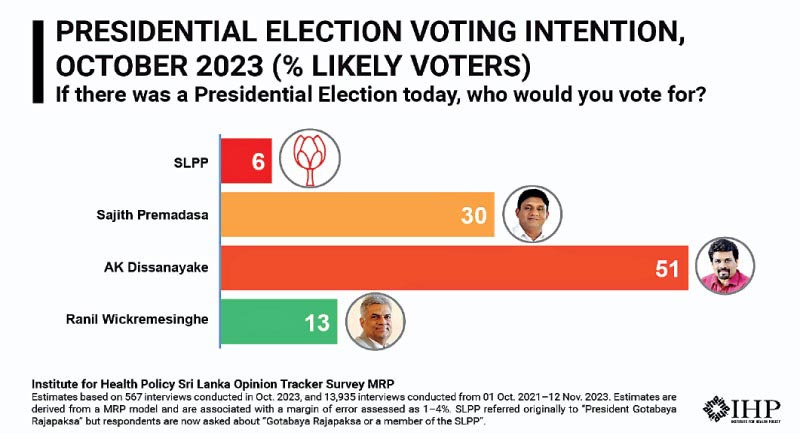Saturday Feb 07, 2026
Saturday Feb 07, 2026
Thursday, 30 November 2023 00:27 - - {{hitsCtrl.values.hits}}
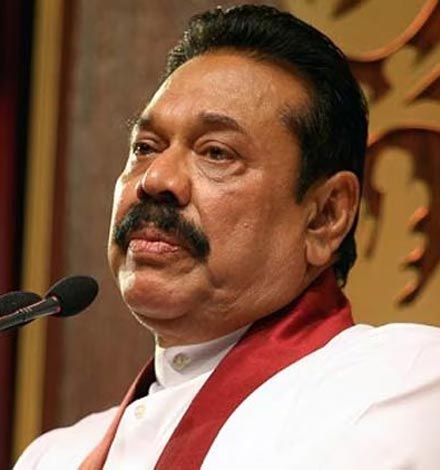
Tragic hero, not villain
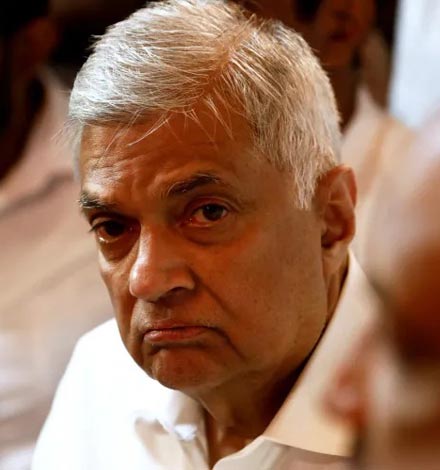
Electoral Kryptonite
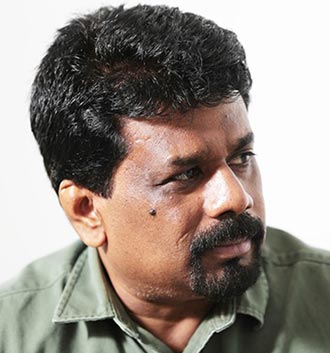
Learning, growing
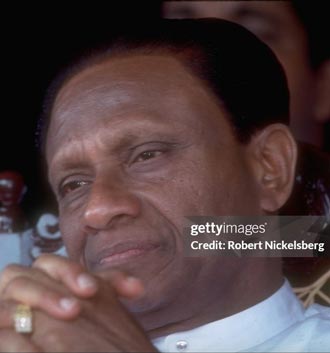
Unfollowed by SJB
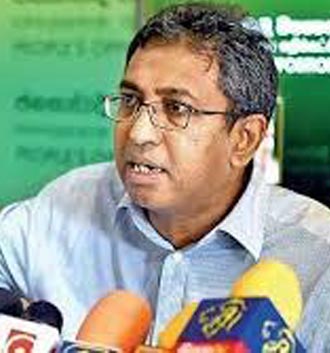
Economic extremism
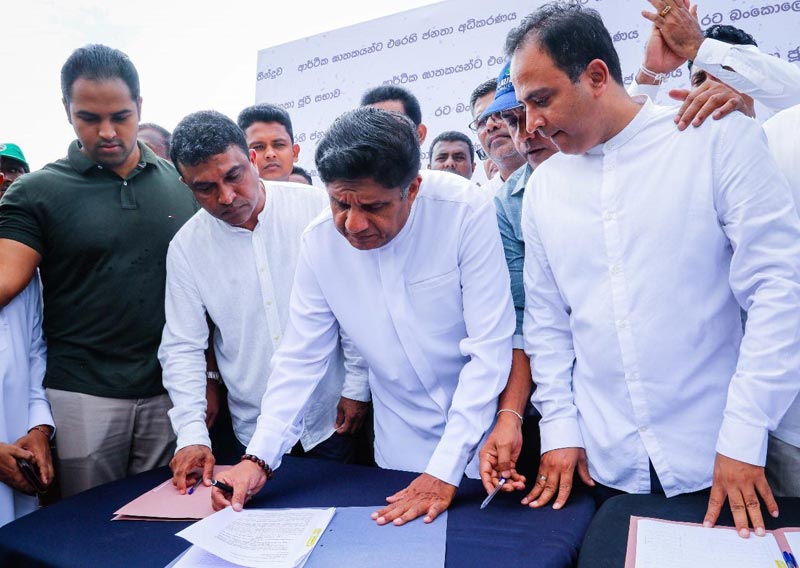
Wrong move
“…then the country would be better served by rallying round an out-of-the box presidential candidacy from the Left Opposition: Anura Kumara Dissanayake. I regard him as a far more serious moral, ethical and ideological challenge to the Rajapaksa Raj, than Ranil, CBK or Reverend Sobitha…”
-Dayan Jayatilleka, April 21st 2014, ‘Elections 2015: The Stakes’
(https://www.colombotelegraph.com/index.php/elections-2015-the-stakes/)
“Applying the Premadasa paradigm is not a preserve of those bearing his surname. Any leader can do it, if they have the heart.”
-Dayan Jayatilleka, May 25th 2018, ‘Gotabaya’s Operation Shangri-la’
(https://www.colombotelegraph.com/index.php/gotabayas-operation-shangri-la/)
 The welcome Supreme Court judgment pertained to the Gotabaya presidency (2019-2022) during which Mahinda was deprived of his powers by his irrational sibling. Demanding the deprivation of Gotabaya’s civic rights is righteous (criminally wrecked harvests, lethally exploding gas cylinders, fatally interminable queues). Demanding that Mahinda’s civic rights be removed isn’t.
The welcome Supreme Court judgment pertained to the Gotabaya presidency (2019-2022) during which Mahinda was deprived of his powers by his irrational sibling. Demanding the deprivation of Gotabaya’s civic rights is righteous (criminally wrecked harvests, lethally exploding gas cylinders, fatally interminable queues). Demanding that Mahinda’s civic rights be removed isn’t.
I write as someone treated unfairly and unwisely by Mahinda who succumbed to pressure and removed me from my post as Sri Lanka’s PRUN-Geneva a mere six weeks after we won a vote on a crucial resolution at the UNHRC in May 2009 for the first and last time.
It is unseemly for SJB front-benchers who were uncritical of their leader Ranil Wickremesinghe’s supine Neville Chamberlain-type appeasement of and Marshal Petain-type collaboration with Prabhakaran, to howl for the removal of civic rights of the leader who defeated Prabhakaran, ended the war and brought peace. However indispensable the war-winning role of Army commander Sarath Fonseka, Mahinda could have done a Ranil, abandoned the war, kept Prabhakaran safe and the ‘Co-Chairs’ cheering-- rather than on his case-- with a single treacherous presidential decision. Mahinda’s positive historical contribution is far greater than his follies. The SJB insists that MR be penalised for his de-merits by removing his civic rights. How does the SJB propose he be rewarded in recognition of his services?
Mahinda is nowhere as detested as Sirimavo Bandaranaike was when she was defeated and deprived of her civic rights. Though hardly supported politically anymore, he is more respected, liked and even loved than any other Sri Lankan politician alive. By targeting MR’s civic rights, the SJB will forfeit a huge swathe of disaffected SLPP/SLFP votes and incur a public opinion backlash from a sentimental citizenry when this tragic hero—no villain-- dies, causing a tsunami of sadness.
SJB vs. NPP
Anura Dissanayake and his NPP (‘Maalimaava’) seem well-positioned to win elections next year. I draw this conclusion not primarily from polling-data but the logic of my own analysis as a political scientist. The polling-data does support my analysis.
Cambridge and Harvard educated Dr. Rannan-Eliya (SLOTS project director) said: “…AKD would have likely won a Presidential Election in October even against a joint SJB-UNP ticket. I suspect this is less voters buying the NPP/JVP policy platform, and most voters rejecting the political establishment and business as usual. Established parties wanting to compete with the NPP probably need to be doing some serious soul-searching.”
(https://www.ft.lk/front-page/AKD-consolidates-lead-in-Presidential-Election-voting-intent/44-755638)
AKD-NPP are considerably ahead because:
 They credibly champion change, while the rival SJB’s top policy architects are repeatedly on the record as explicitly declaring the party’s support for continuity with Ranil’s strategic economic agenda-- when the citizenry seeks an exit from the agonising ‘shock therapy’ it imposes.
They credibly champion change, while the rival SJB’s top policy architects are repeatedly on the record as explicitly declaring the party’s support for continuity with Ranil’s strategic economic agenda-- when the citizenry seeks an exit from the agonising ‘shock therapy’ it imposes.
 The SJB and President Wickremesinghe are fighting it out for a diminished UNP vote-base, a minority of the vote, while the NPP is rallying the anti-incumbent, anti-establishment, anti-status-quo sentiment, a majority of the vote.
The SJB and President Wickremesinghe are fighting it out for a diminished UNP vote-base, a minority of the vote, while the NPP is rallying the anti-incumbent, anti-establishment, anti-status-quo sentiment, a majority of the vote.
The UNP vote-base dwindled under Ranil to less than 25% of the vote by Feb 2018 while still in government. The SJB took that 23% away from him in 2020 but has failed to grow. The SJB’s decision to de-link from Ranil but not from his policies, and to openly place itself on a continuum with his 2001-2004 and 2015-2019 administrations, has given it bad case of self-stultification.
The SJB strategists’ blunder was based on the simplistic assumption that the people suffering under the privation imposed by the Gotabaya presidency would automatically swing to the ‘generic UNP’, i.e., the center-right, the ‘green’ ideological space, and therefore the SJB only had to monopolise that space and brand. That was folly because the UNP had been structurally shrunk not merely by Ranil’s personality but also his policies.
Instead of becoming a new party representing President Premadasa’s ‘equitable growth’ policies and practising multi-directional outreach, the SJB aspired to becoming a successor party to Ranil’s UNP, preaching ‘Ranilism without Ranil’. Hypnotised by (Shenoy-Hausmann) economic ‘obstacles to growth’, it failed to see the political ‘obstacles to growth’ and the economic obstacles to political growth which had kept the UNP from being elected to the country’s leadership for 30 years. The removal of these were a prerequisite for the SJB to be capable of winning an election to lead the country and addressing economic ‘obstacles to growth’.
Not having been educated out of Ranil’s policies and into President Premadasa’s, the SJB was caught off-balance after Ranil threw his hat in the ring and was appointed PM and President.
Ranil’s presidency hasn’t increased UNP, SLPP or SJB popularity. His leadership remains electoral Kryptonite. Even if the SJB and UNP unite, their combined vote isn’t enough to win: Sajith’s 30% + Ranil’s 13% =43%; Anura 51%.
On ‘Salakuna’ anchored by Chamuditha Samarawickrema, a widely watched talk-show on mainstream national television, this is what the main Opposition SJB’s chief economist Dr. Harsha de Silva said recently (as quoted without subsequent contradiction in an English-language daily):
“At the onset of the programme, Dr. de Silva said that the SJB accepted the general direction of President Ranil Wickremesinghe’s budget. One-time Wickremesinghe deputy on economic affairs during the yahapalana government, lawmaker de Silva said that SJB is comfortable with the budget in spite of concerns.”
“Top SJB spokesman Dr. Harsha de Silva on Monday (20) dismissed Justice Minister Dr. Wijeyadasa Rajapakshe’s claim that well over USD 56.5 bn had been parked overseas by some exporters…The Justice Minister and rebel SLPP MPs have declared that the enactment of Foreign Exchange Act No 12 of 2017 had led to the current situation.
Appearing on the live political programme Salakuna on Hiru, the Colombo District lawmaker said that such accusations were nothing but a joke. One-time Economic Reforms and Public Distribution State Minister de Silva declared that it was nothing but a made-up story.
The SJB lawmaker said so when Hiru anchor Chamuditha Samarawickrema asked whether the Yahapalana government contributed to the current crisis by doing away with the time-tested Exchange Control Act No 24 of 1953. Governor of the Central Bank Dr. Nandalal Weerasinghe, too, has on several occasions raised concerns over the failure on the part of exporters to bring back proceeds.
Responding to Samarawickrema’s query whether the new law contributed to the bankruptcy, MP de Silva said that it was meant to pave the way for Sri Lankans to set up businesses abroad...”
Thus, the principal author of the SJB Economic Blueprint(s) confirmed that:
 An SJB administration will mean more continuity than change from the policies of UNP leader Wickremesinghe as President and on his earlier outings as PM.
An SJB administration will mean more continuity than change from the policies of UNP leader Wickremesinghe as President and on his earlier outings as PM.
 A vote for the SJB’s Economic Blueprint(s) is not a vote for an alternative to current and previous neoliberal UNP economic policy (2001-2004, 2015-2019) but a vote for a successor administration which essentially continues that policy, i.e., a tactical shift, not an authentic or macroeconomic change.
A vote for the SJB’s Economic Blueprint(s) is not a vote for an alternative to current and previous neoliberal UNP economic policy (2001-2004, 2015-2019) but a vote for a successor administration which essentially continues that policy, i.e., a tactical shift, not an authentic or macroeconomic change.
 The SJB is part of the economic Establishment. Electing an SJB administration will only mean a reshuffling of the same deck of cards of Ranil’s 2015-2019 UNP administration.
The SJB is part of the economic Establishment. Electing an SJB administration will only mean a reshuffling of the same deck of cards of Ranil’s 2015-2019 UNP administration.
In a context dominated by economic crisis, the economic ideology of an Opposition party is crucial. Dr. Harsha de Silva’s line has rendered the SJB politically paraplegic. It cannot be a fully functional Opposition party which punches its full weight, while sharing fundamentals of economic policy with the incumbent in the context of widening economic distress issuing from that policy from which the electorate seeks an exit ramp, not continuity.
 The generic UNP (‘green’) vote-base is structurally slender.
The generic UNP (‘green’) vote-base is structurally slender.
 The SJB has been entrapped in that electoral kill-zone by its economic ideologues who’ve painted a target on the SJB’s back.
The SJB has been entrapped in that electoral kill-zone by its economic ideologues who’ve painted a target on the SJB’s back.
 The SLPP’s vote-base has disintegrated (6%) due to Gotabaya’s rural rampage.
The SLPP’s vote-base has disintegrated (6%) due to Gotabaya’s rural rampage.
Thus, the field has been cleared for the NPP and AKD, not least as default option, but more as primary agency of change.
Free-market matrix
The SJB had a perfect alternate project dating back to the Citizens’ Front (Puravesi Peramuna 1972-73) of R. Premadasa—of which Imtiaz Bakeer Markar was youth leader—through to the Premadasa presidency (1988-’93). Why did it reject that pathway?
Ramindu Perera, a senior lecturer in law and a literate young intellectual supporter of the NPP attributes the SJB’s behaviour to structural/class and systemic factors. (https://ssalanka.org/why-2024-will-not-be-2015-redux-by-ramindu-perera/ssalanka/) He is critical of me, whom he describes as an ‘SJB sympathiser’, for vainly striving to rescue the SJB from neoliberalism while forgetting the class determinants which foredoom my ‘advice’.
There is a dualism in his analysis in that he has leaned heavily in his championing of the NPP, on the category of ‘left populism’ deriving from the writings of Ernesto Laclau and Chantal Mouffe, widely known for their breakthrough which placed class on the backburner –dispensing with it as agency--in favour of ‘discourse’. So, discourse for the goose is not discourse for the gander.
That said, Ramindu is on the right track in searching for structural factors governing the SJB’s choices, though he’s got those factors wrong. If class and frameworks of global capitalism such as the IFIs are the factors swaying the SJB one way rather than the other, then by the same token the NPP-JVP would have to admit that President Premadasa was not a captive of those class factors—something I have always argued—because he was able to implement a policy drastically different from the Ranil-IMF-SJB Blueprint policy package.
If the NPP doesn’t accept that more progressive, pro-people i.e., genuinely social democratic policies are possible within national and international capitalism, then it would have to admit that it will need to step outside the capitalist framework in implementing its policies if elected to office. That would be adventurism.
That pitfall is avoidable by the Realist recognition that a policy other than neoliberalism is possible within local and global capitalism today. That would be a Stiglitz-Krugman policy. That is the option that the SJB could easily have embraced, and the NPP should. Why then isn’t the SJB embracing that progressive economic paradigm?
There are structural factors sometimes more pressingly salient than class or the global framework of capitalism. Is there a class or systemic difference between the US Democrats and Republicans? Not really, though Bernie Sanders, AOC and the Squad could never be housed in the Republican party, nor has it nominated a Barack Obama. The key variable is the interface of policy-elites and discourse-bearing networks.
When the UNP split in 2020 and the overwhelming bulk shifted over to the SJB, the new party began with references to Premadasa’s Puravesi Peramuna and SWRD Bandaranaike’s fledgling SLFP, but there was an ideological counterreformation and the party was ‘converted’ back to the free-market fundamentalist faith of its (former) longtime leader, Ranil Wickremesinghe, rather than the developmentalist-populism of its founder-leader’s father, Ranasinghe Premadasa.
The SJB didn’t cut the umbilical cord to the discredited, unpopular past as JR and Premadasa successively did. That left a right-wing residue:
(a) Mangala Samaraweera’s ideology (often praised by Harsha-Eran).
(b) The Yahapalanaya UNP policy elite.
(c) The international networks established during the quarter-century of Ranil’s UNP leadership, in particular his two stints as PM (2001-4, 2015-2019).
These networks range from the International Democratic Union (IDU), the Berghof Foundation (no longer in SL), the International Republican Institute, the Friedrich Naumann Stiftung and Konrad Adenauer Stiftung, to the Atlas Network (which backed Argentina’s Milei) of which the Lankan offshoot is the Advocata Institute. (https://www.advocata.org/media-archives/2021/12/22/a-tribute-to-linda-whetstone-from-sri-lanka)
They constitute a matrix within which Ranil Wickremesinghe and SJB policy-makers are enmeshed. This has obstructed and defeated my triple effort:
 To make President Premadasa’s policy paradigm the guiding vision of the SJB, and the resumption, continuation and completion of the Premadasa project—interrupted by his assassination and abandoned by his successors – Sajith’s and the SJB’s mission.
To make President Premadasa’s policy paradigm the guiding vision of the SJB, and the resumption, continuation and completion of the Premadasa project—interrupted by his assassination and abandoned by his successors – Sajith’s and the SJB’s mission.
 To persuade the SJB to be the Sri Lanka’s equivalent of the US Democrats, UK Labor, and Europe-Australia-New Zealand’s Social Democrats.
To persuade the SJB to be the Sri Lanka’s equivalent of the US Democrats, UK Labor, and Europe-Australia-New Zealand’s Social Democrats.
 To convince the SJB to hook-up with these progressive-centrist parties, considering them (and their think-tanks) rather than the global Right/Center-Right (IDU) as the SJB’s global family.
To convince the SJB to hook-up with these progressive-centrist parties, considering them (and their think-tanks) rather than the global Right/Center-Right (IDU) as the SJB’s global family.
I am certain this is what President Premadasa, with his Labour Party provenance and support from iconic Social Democrat Willy Brandt, would have wanted.
Anura as authentic alternative
In March-April 2014 I recommended Anura Dissanayake as an Opposition presidential candidate. In May 2014, K. Ratnayake of the world’s leading Trotskyist website critiqued it in a piece entitled ‘Sri Lankan ex-radical calls for a JVP presidential candidate’:
“Dayan Jayatilleka, a former middle-class radical turned diplomat and political adviser to the Sri Lankan establishment, has proposed that Anura Kumara Dissanayake, the new leader of the Janatha Vimukthi Peramuna (JVP), should be the main opposition candidate in the next presidential election…
As a student, Jayatilleka embraced Maoism and Castroism in the 1970s...Over the past three decades, he has integrated himself into the Colombo political establishment, first as an adviser to United National Party (UNP) President R. Premadasa in the late 1980s and more recently as a senior diplomat. In an article published last month, entitled “Elections 2015: The Stakes” Jayatilleka…examines possible opposition candidates, but his conclusion is striking…
…Casting around for a Sri Lankan [Hassan] Rouhani to galvanise the opposition, Jayatilleka anoints the JVP leader. “The country would be better served by rallying round an out-of-the box presidential candidacy from the Left Opposition: Anura Kumara Dissanayake. I regard him as a far more serious moral, ethical and ideological challenge to the Rajapakse Raj,” he declares.
…The turn to the JVP is highly significant…Like Jayatilleka, the JVP has long since integrated itself into the political establishment and has cordial relations with the US embassy in Colombo.
…In an article in March, Jayatilleka pointed to the experience of the Latin American bourgeoisie to convince doubters that his “out-of-the box” suggestion is a viable means to defend their interests.
“Renewal of the JVP through its new young leader [Dissanayake] brings to mind the electoral renaissance of ex-revolutionary groups in Latin America,” Jayatilleka wrote. “Given the urgency of the Sri Lankan crisis, I have no hesitation in saying … society may—and should—shift a few steps leftward, to a JVP-centric broad Oppositional project at both Presidential and parliamentary elections…along the lines of the successful Latin American populist-democratic left.”
(https://www.wsws.org/en/articles/2014/05/13/jaya-m12.html)
A free-market fundamentalist cartel could construct a consensus cutting across Government, Opposition and security apparatuses, that “AKD and the JVP-NPP must be stopped by any means necessary”. That class-hatred could turn lethal.
The best deterrence-cum-defence remains what I urged a decade ago: “a JVP-centric broad Oppositional project.”
2024 is the last endgame.
